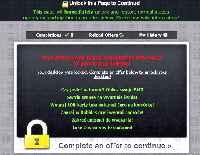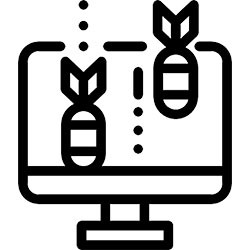Malware Security Alerts Weekly Report for August 2 - August 8, 2020
This week, the SpyHunter malware research team has highlighted a weekly roundup of common and critical malware threats that are currently affecting computers around the world. Take a look at this week's report and stay ahead of trending malware threats!
Table of Contents
This Week in Malware Video
This episode discusses the following topics: How the Java-based STRRAT malware is stealing credentials from computer users by leveraging the .CRIMSON Ransomware threat. Also, the IcedID banking trojan is uncovered for its tricks that it uses to exploit users via COVID-19 and FMLA (Family and Medical Leave Act) phishing emails, and finally it is revealed how the Ragnar Locker Ransomware is targeting remote management software that is used by MSP (Managed Service Providers).
Malware Security Alerts of the Week
 |
Ytmp3.cc Ytmp3.cc is an adware threat that has the behavior of a browser hijacker where it may bombard computer users through popular web browser apps with several pop-up alerts and advertisements. Components associated with Ytmp3.cc may modify Internet settings potentially causing unwanted site redirects to sites with questionable content. Read more |
 |
'Unlock this Page to Continue!' Virus 'Unlock this Page to Continue!' Virus is a computer threat that is known for blocking access to a system through an alert message where it makes bogus claims of the system being infected with a serious virus. Computer users are often forced into paying a fee through Ukash or other e-money systems to unlock the threat and allow use of the system. Read more |
 |
Nile Ransomware Nile Ransomware is a known malware threat that comes from the massive STOP Ransomware family, known for being aggressive in locking up an infected PC where it will display a ransom note making demands to pay a ransom fee for supposedly unlocking files it has encrypted upon infection. Read more |
 |
'I am a professional coder and i hacked your device' Email Scam The 'I am a professional coder and i hacked your device' Email Scam is a misleading email that computer users may receive upon being targeted by hackers. The threat message or email may make bogus claims of a hacking allegedly having incriminating video footage but is a commonly used scare tactic to get the computer user scared enough to pay a fee that the hacker demands. Read more |
Do You Suspect Your Computer May Be Infected with Malware? Here’s How to Check
Scan Your Computer for Malware with SpyHunter
SpyHunter is a powerful malware remediation and protection tool designed to help provide users with in-depth system security analysis, detection and removal of a wide range of threats like Newsbreak.com as well as a one-on-one tech support service. Download SpyHunter's FREE Malware Remover*
This Week’s Most Interesting Computer Security and Malware News
 |
What Does DDoS Stand For? A Distributed Denial-of-Service (DDoS) attack is one of the most common forms of attacks that ends up bringing servers and websites down. In the landscape of today's Internet and websites, DDoS attacks should be on the radar screen of not only webmasters but computer users should be aware of what type of attack may come to their system as well. |
 |
Is Your Web Browser Secure Enough? Most computer users have no idea that their web browser isn't secure enough to be trusted for everyday use. There are steps computer users must take to ensure that their web browsers are secure so they don't become the next victim of identity theft or a malware attack. |
 |
Cybercriminals Sticking to Coronavirus and Financial Themes for Phishing Scams COVID-19 and the Coronavirus continue to be a popular subject matter that is exploited by cybercriminals with new and clever COVID-19-themed phishing scams and attacks that may spread malware. Computer users must beware of such threats and attacks. |